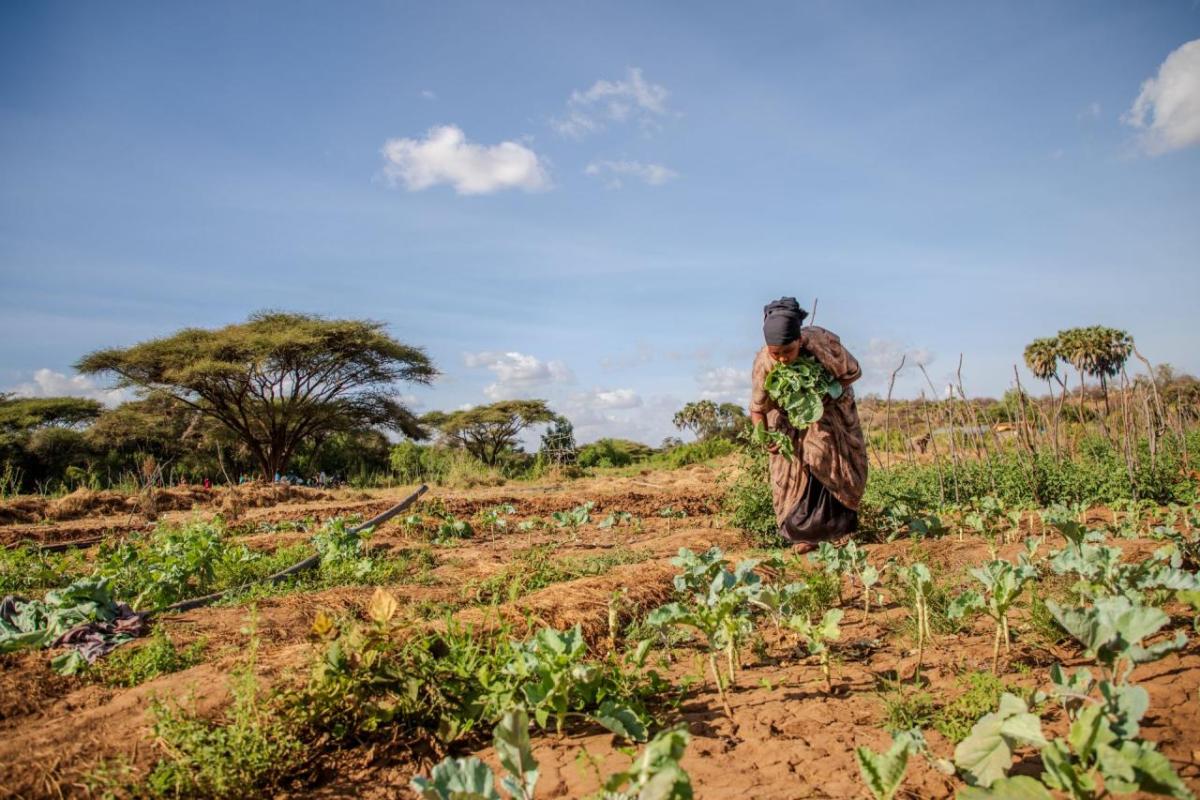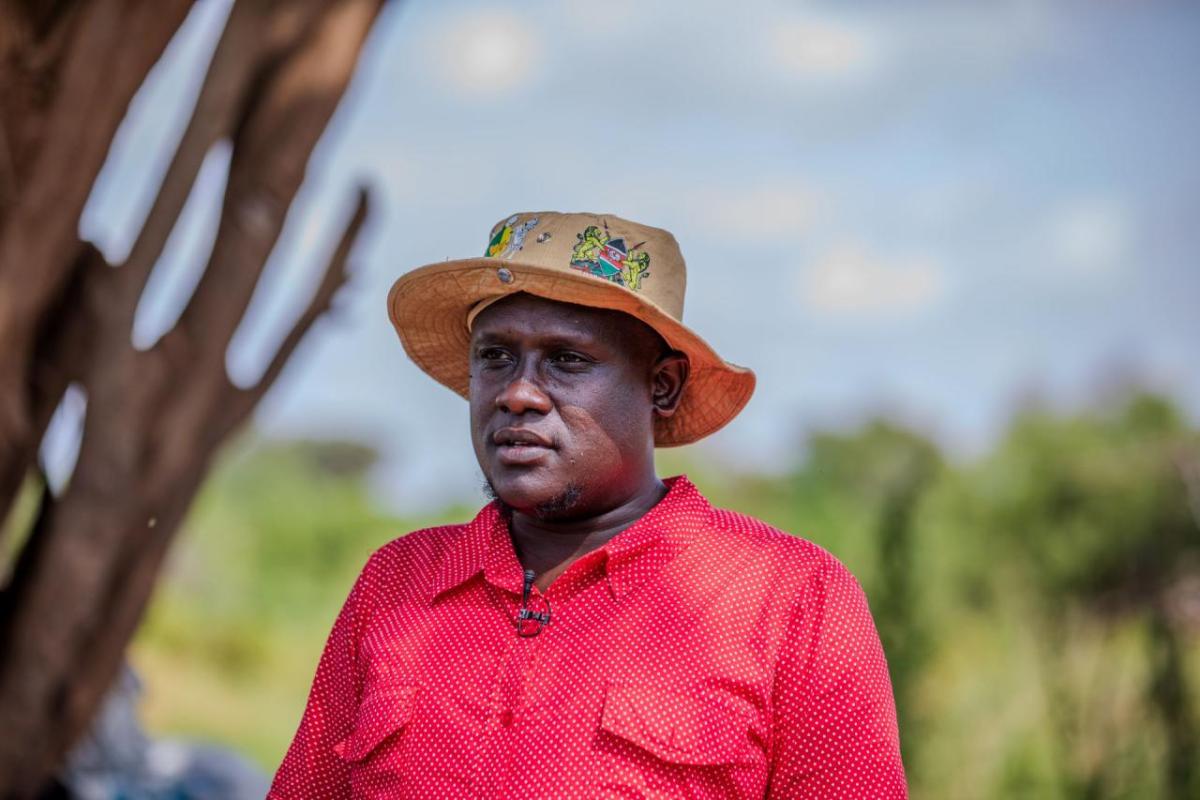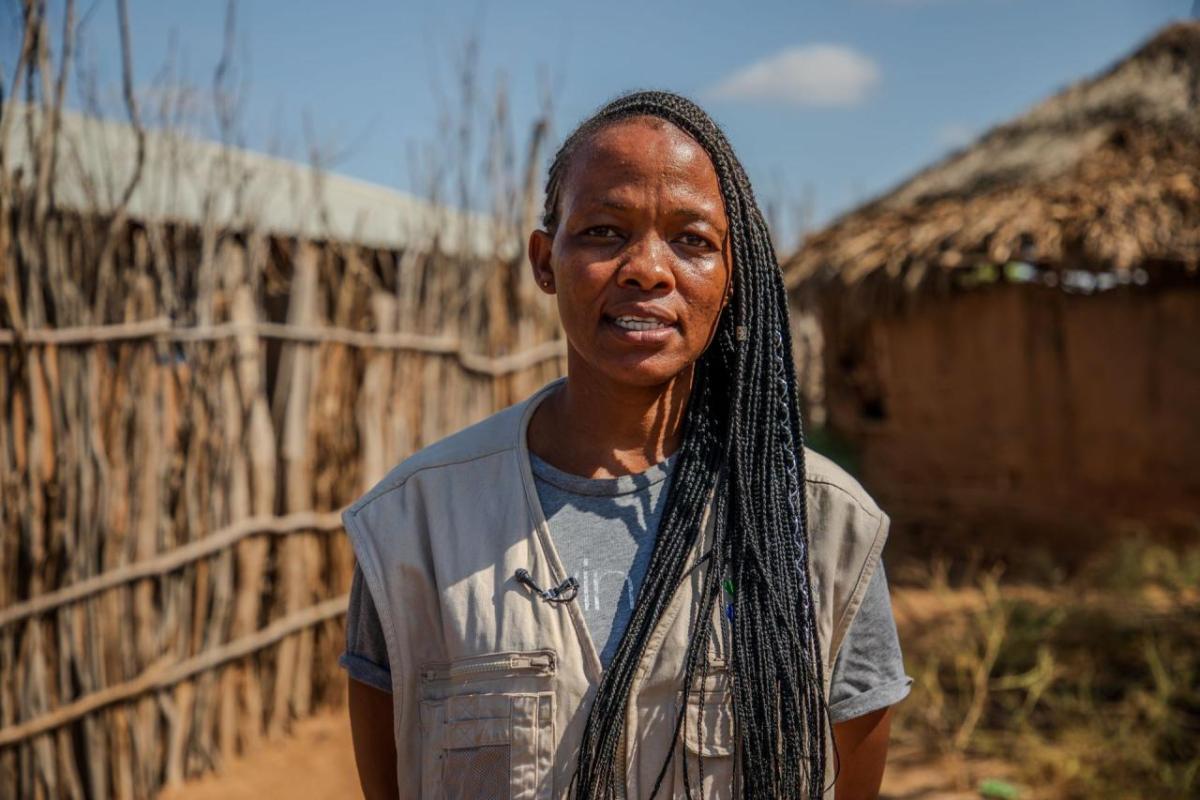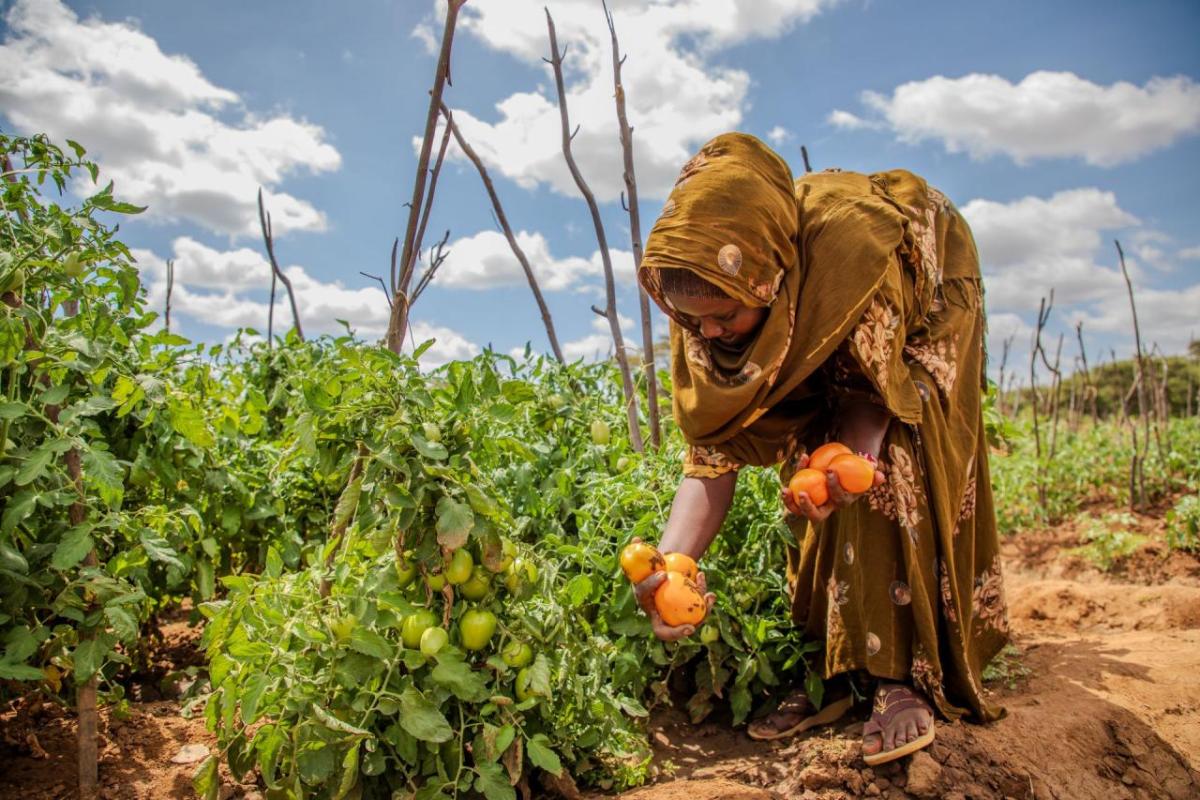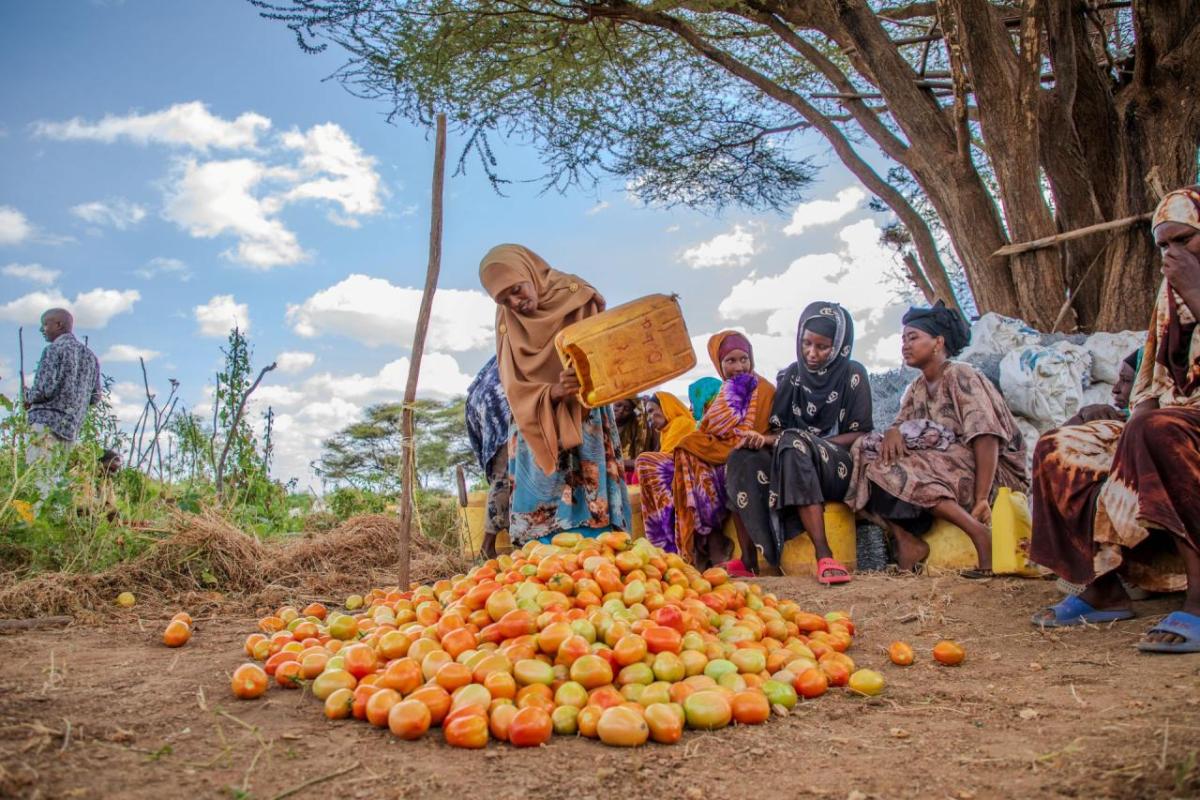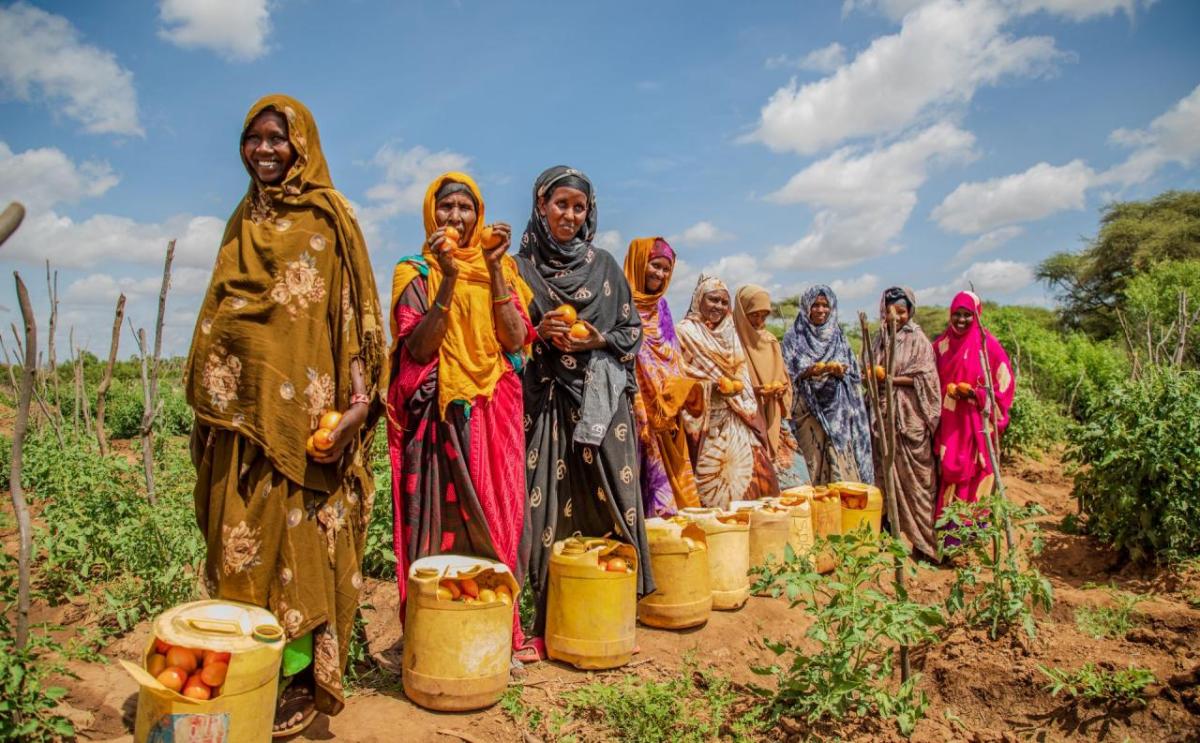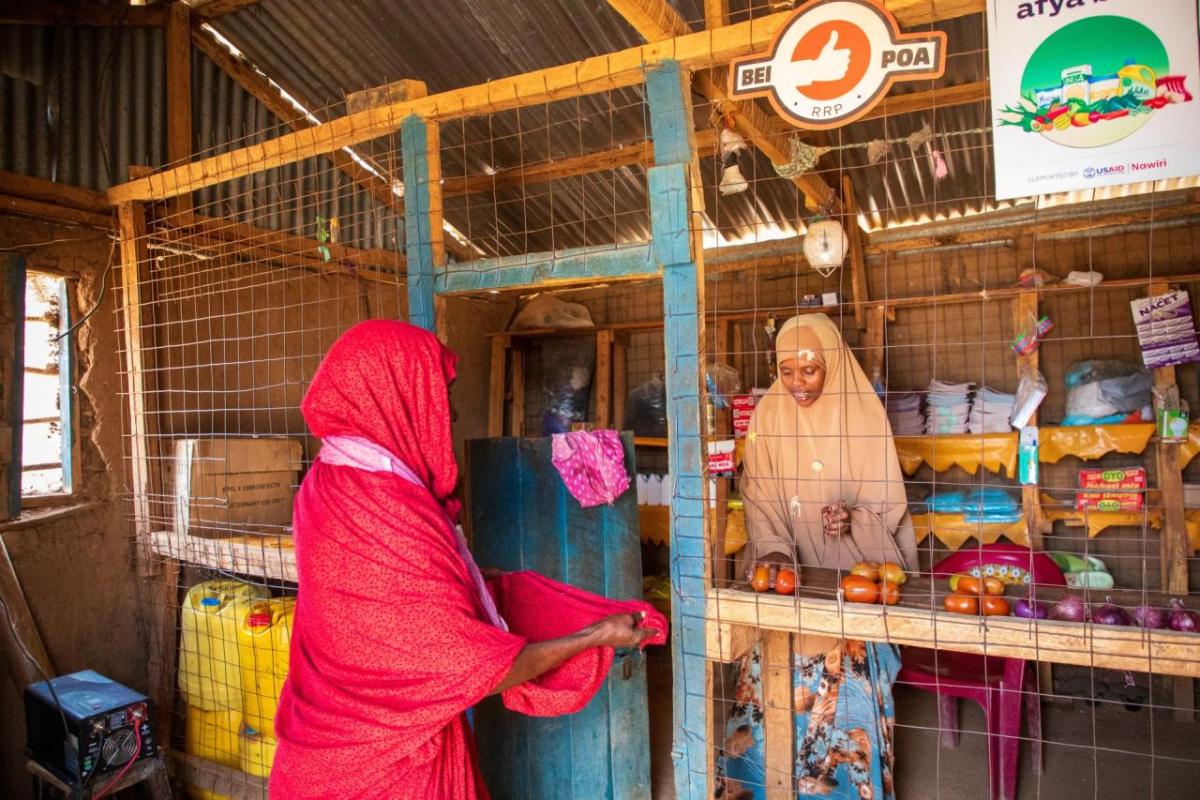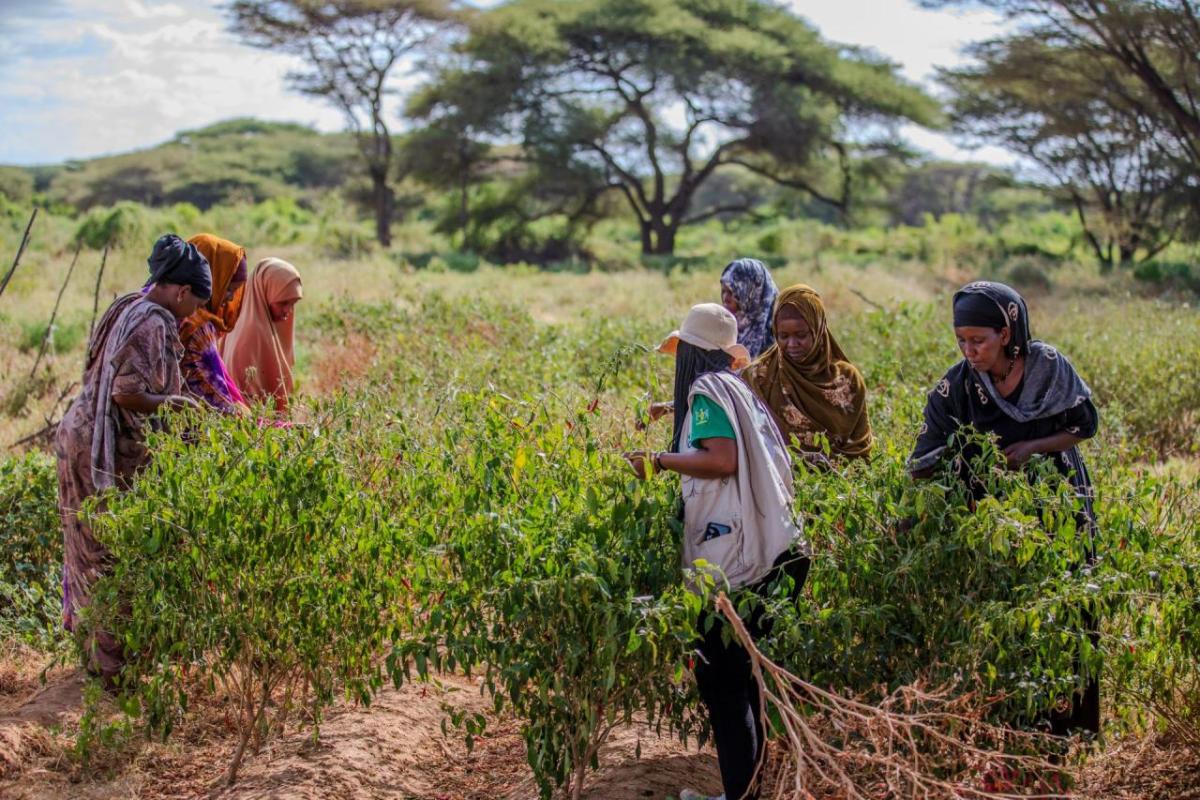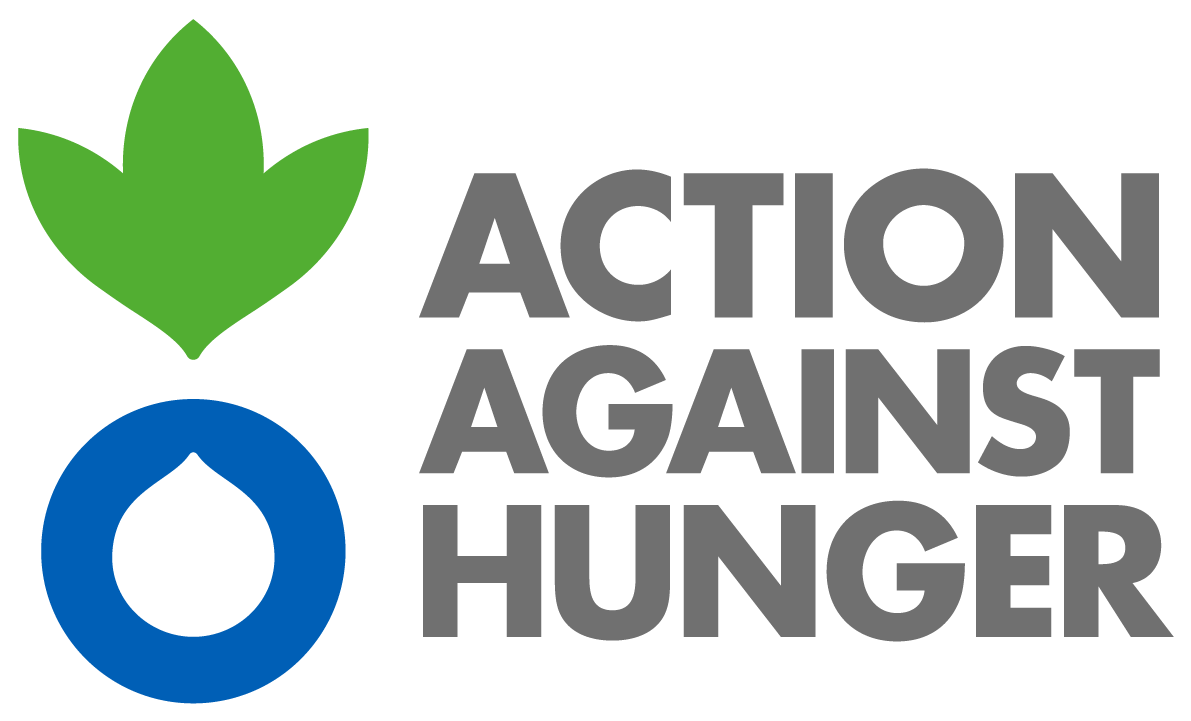Climate-Smart Solutions for Food Security: A Community-Led Transformation in Kenya
Update from on the ground
Published by Action Against Hunger.
Empowering Communities Through Climate-Smart Agriculture and Women's Leadership
In the remote village of Malkadaka, home to just 800 households in Kenya, climate change was wreaking havoc. Once a self-sufficient pastoralist community, Malkadaka was devastated by recurring droughts and floods that decimated livestock and left families struggling with hunger and uncertainty. More than 100 miles from the nearest major town, Isiolo, the village remained isolated and cut off from vital resources needed to recover and rebuild.
As their traditional pastoralist lifestyle became increasingly unsustainable, some members of the community were determined to adapt. In 2018, a group of local women came together to form the Habsa Women’s Group, united by a shared goal: to improve access to nutritious food through agriculture. They started with maize farming, learning the fundamentals of crop cultivation. Encouraged by early success, they expanded their efforts to grow vegetables like onions and kale—taking a vital step toward food security and resilience.
Despite achieving a remarkable milestone—learning to grow crops with limited tools and in a harsh, unpredictable climate—the women still faced significant hurdles. Persistent droughts and pest infestations continued to threaten their harvests, keeping true food security out of reach. In 2023, the Habsa Women’s Group partnered with Action Against Hunger through the “Building Resilience of Drought-Affected Communities” project in Isiolo County, funded by the UBS Optimus Foundation. The initiative focuses on improving access to nutritious, diverse diets in communities affected by climate change—especially for women and children under five, who are most vulnerable to malnutrition. By offering sustainable solutions to the challenges of food insecurity, poor dietary diversity, and limited livelihoods, Action Against Hunger is working hand in hand with the women of Malkadaka to build resilience and adapt to the realities of a changing climate.
Innovative, Climate-Smart Techniques to Conserve Water and Boost Yields
Action Against Hunger began by introducing farming techniques tailored to improve yields in a challenging climate by focusing on methods like crop rotation and the use of drought-resistant seeds. Designed to be farmer-centered, regenerative, and nature-based, the program emphasized eco-friendly practices that nurtured the land and empowered local communities. For the Habsa Women’s Group, the training prioritized sustainability and self-reliance. They learned techniques such as intercropping—growing different crops together as a natural way to manage pests. To protect their harvests from grazing animals, Action Against Hunger also supported the construction of a fence around the group’s two-acre farm.
Malkadaka Village’s greatest challenge was its harsh, arid climate—marked by low rainfall and prolonged droughts. To help the community adapt, Action Against Hunger introduced a range of climate-smart farming techniques designed to improve water retention and make the most of scarce resources. One key innovation was the installation of solar-powered water pumps, which provided a reliable source of irrigation even during dry spells. Another simple yet effective solution was the use of sunken beds—garden beds dug below ground level to create natural basins that capture rainwater and retain moisture in the soil.
“We have trained the farmers in climate-smart agriculture because our farming is irrigation dependent,” explains Janet Muema, Action Against Hunger’s Food Security & Livelihoods Officer for Kenya. “Water is a big challenge, and rainfall is unreliable in this area.” In addition to conserving water, sunken beds also helped enrich the soil by trapping organic matter—an affordable, sustainable practice well-suited to the region’s changing climate.
“Since then, we have witnessed a lot of benefits,” says Wario Huka, a key community leader who mobilized women to join the initiative. Now serving as Chair of the Habsa Women’s Group, Wario worked closely with Action Against Hunger’s agricultural officers to support the group in selecting and cultivating high-value crops. Their efforts paid off: the women produced a strong harvest of tomatoes, onions, green grams, and hot peppers—nutritious vegetables that are both scarce and costly in the local market. The group used part of the harvest to nourish their families and sold the surplus. Even after covering labor costs, they earned a profit of approximately Ksh60,000 (about $463)—a promising step toward sustainable livelihoods.
For the women of the group, this income opened doors to new possibilities—allowing them to invest in farm tools, launch side businesses, purchase essential household items, and support their children’s education. These were not just transactions, but life-changing steps toward lasting resilience. To help the women build on this progress, Action Against Hunger established a Village Savings and Loan Association (VSLA), offering training in financial literacy and encouraging financial independence. With newfound confidence and knowledge, the women were empowered to manage their earnings, plan for the future, and strengthen their community’s economic foundation.
Partnering with Local Government to Scale Impact and Sustainability
To ensure long-term success, Action Against Hunger partnered closely with the local government of Isiolo to coordinate efforts and align with community priorities. “Value addition was a key focus of the project and a top priority for the county,” explained Janet Muema, Food Security & Livelihoods Officer. This shared vision helped guide the selection of high-value crops for the Habsa Women’s Group. Mansur Shaban, Acting Director of Investment & Industrialisation for Isiolo’s Department of Trade, Cooperative, and Industrialization Development, is also working alongside other county actors to scale up the production of these profitable crops—supporting broader efforts to strengthen local markets and livelihoods.
Mansur Shaban is also working closely with Action Against Hunger to help the Habsa farmers expand their reach by linking them to markets within Isiolo County, including Merti and Sericho. This market access has a two-fold benefit: it increases the group’s income—allowing for reinvestment into their agricultural efforts—and improves access to fresh, affordable produce for communities across the region.
Recognizing the limitations of Isiolo’s rural market, Action Against Hunger and the county government are also working to connect farmers with markets beyond Isiolo, including cities to the south like Meru, where goods are often more affordable and accessible. “We are working to link farmers with main suppliers in those towns,” explains Mansur. “We encourage them to form cooperatives or aggregation groups so they can purchase inputs in bulk and reduce costs. These groups will also make it easier to market their products once harvested.”
Opportunities for further growth are on the horizon. The Kenyan government has launched the Isiolo County Aggregation and Industrial Parks (CAIPs) initiative, which will offer cold storage, agro-processing facilities, and value-addition services to farmers—helping reduce post-harvest losses and increase earnings. A government feasibility study identified strong market potential for tomato-based products from Malkadaka. “We want our farmers to take advantage of that,” says Mansur. “With the CAIPs project, we will have a food processing plant that includes a tomato processing unit. We want these farmers to increase production now so that when the time comes, they’ll have the volumes needed.”
The Habsa Farm is one of six groups in Isiolo County trained by Action Against Hunger in climate-smart farming. Similar efforts are now underway in Chumvi-are Village, where two new groups have begun preparing for planting. Expanding these techniques across villages is critical to ensuring consistent access to fresh produce and reducing malnutrition in the region.
In Malkadaka, the Habsa Women’s Group currently operates the only vegetable-producing farm in the community. The model has already inspired replication: in Kitengesi village, a similar project has taken root, offering new pathways to food security and resilience. These climate-smart farming initiatives have led to more diverse diets, reduced reliance on livestock, and greater economic empowerment—especially for women—across Isiolo County.
Why Holistic, Climate-Smart Agriculture Is Key to Ending Hunger
The collaborative efforts in Malkadaka underscore the transformative power of sustainable agriculture to address environmental challenges, economic needs, and nutritional well-being. For climate-smart agriculture to succeed, it must be rooted in a long-term, holistic framework. “Action Against Hunger engaged multiple government departments—including gender and social services, trade, agriculture, and health—to ensure the root causes of malnutrition were addressed in a coordinated and sustainable way,” says Mansur Shaban, Trade, Investment, and Industrialization Officer for the Isiolo County Government. In his role, Shaban leads the Department of Trade and works to strengthen market linkages that prevent post-harvest losses and support local farmers.
As Malkadaka continues its journey toward climate resilience, its story stands as a powerful example of what’s possible when communities, governments, and humanitarian actors come together with a shared vision.
The success of the Habsa Women’s Group and the broader transformation of Malkadaka Village reveal the extraordinary potential of climate-smart agriculture—especially when it is grounded in community leadership, supported by cross-sector collaboration, and guided by a systems-based approach. Through agroecological practices, improved market access, and women-led innovation, this initiative has done more than grow food. It has built resilience, strengthened livelihoods, and empowered women to lead lasting change.
This partnership-driven model shows that sustainable farming isn’t just viable in the face of the climate crisis—it’s essential. It offers a roadmap toward a more just, food-secure future for rural communities everywhere.
***
Action Against Hunger leads the global movement to end hunger. We innovate solutions, advocate for change, and reach 21 million people every year with proven hunger prevention and treatment programs. As a nonprofit that works across over 55 countries, our 8,900 dedicated staff members partner with communities to address the root causes of hunger, including climate change, conflict, inequity, and emergencies. We strive to create a world free from hunger, for everyone, for good.

